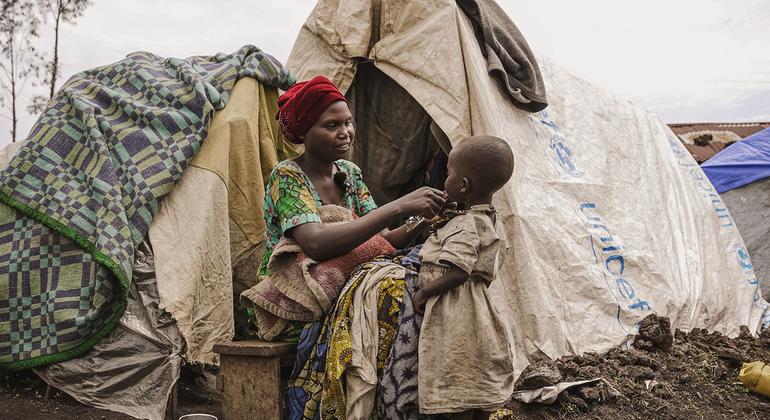Intensifying hostilities in eastern Democratic Republic of the Congo involving the non-state armed group M23 have caused further mass displacement in the mineral-rich region, with fears that the regional capital Goma could come under attack, UN agencies warned on Friday.
The situation in the eastern DRC has been a long-standing issue, with various armed groups vying for control of the region’s valuable mineral resources. The M23 group, in particular, has been a major player in the conflict, and their recent actions have sparked renewed concerns about the stability of the region.
According to reports from UN agencies on the ground, the M23 group has launched a series of attacks on civilian populations in the region, leading to a significant increase in the number of people fleeing their homes. Many of these displaced individuals are now living in makeshift shelters or seeking refuge in nearby towns and villages, putting additional strain on already limited resources.
The situation is particularly dire in the city of Goma, the regional capital of North Kivu province, where there are fears that the M23 group could launch a direct attack. The city, which is home to over a million people, is a key economic and political hub in the region, and any disruption to its operations could have far-reaching consequences for the entire area.
UN agencies have been working tirelessly to provide assistance to those affected by the conflict, but the ongoing violence has made it difficult to reach all those in need. Humanitarian organizations have reported shortages of food, water, and medical supplies in many areas, putting the lives of thousands of people at risk.
In addition to the immediate humanitarian concerns, there are also fears that the conflict in the eastern DRC could have wider regional implications. The instability in the region has the potential to spill over into neighboring countries, leading to further violence and displacement across the Great Lakes region.
The UN Security Council has been closely monitoring the situation in the DRC and has called for an immediate cessation of hostilities. The Council has also urged all parties to the conflict to respect international humanitarian law and ensure the protection of civilians caught up in the fighting.
Despite these efforts, the situation in the eastern DRC remains volatile, with no clear end in sight to the conflict. The UN agencies on the ground continue to work tirelessly to provide assistance to those in need, but the challenges they face are immense.
As the conflict in the eastern DRC continues to escalate, there is a growing sense of urgency within the international community to find a lasting solution to the crisis. The people of the region have suffered for far too long, and it is imperative that all parties involved in the conflict come together to find a peaceful resolution to the violence.
In the meantime, the UN agencies on the ground will continue to provide aid and support to those affected by the conflict, in the hope of alleviating some of the suffering and helping to build a more stable and secure future for the people of the eastern DRC.









